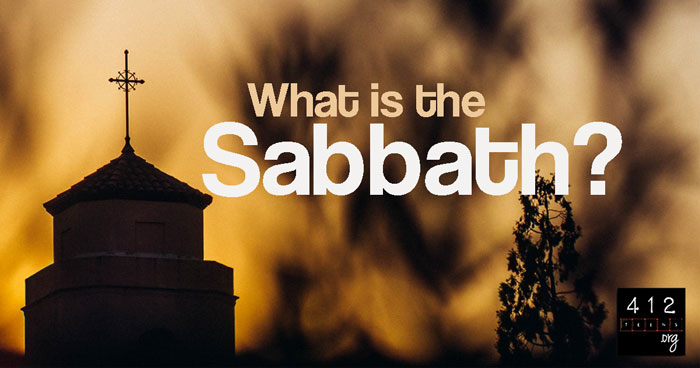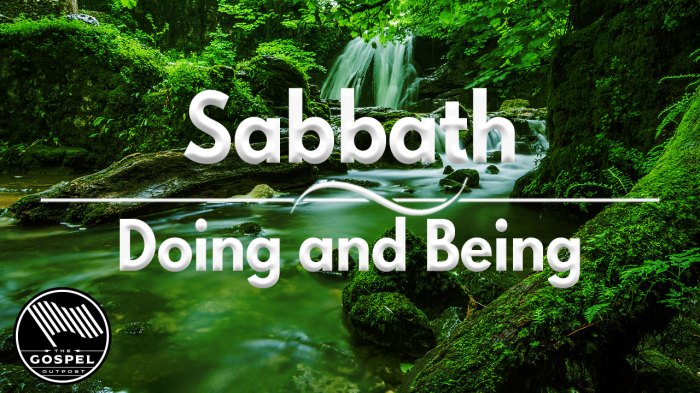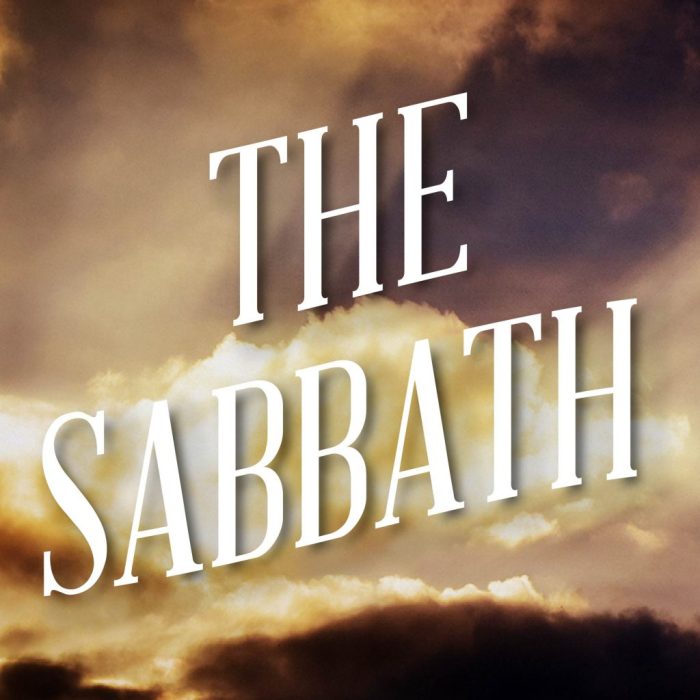God’s rest on the 7th day crossword – Embark on an enlightening exploration of “God’s Rest on the 7th Day” crossword, a captivating puzzle that intertwines biblical narratives, theological implications, and the intriguing world of wordplay. As we delve into the intricacies of this enigmatic clue, we will uncover its profound historical context, cultural representations, and modern-day relevance.
Unraveling the clues that lead to the answer, we embark on a journey of lateral thinking and wordplay, deciphering the biblical references embedded within the puzzle. This crossword becomes a gateway to understanding the theological implications of God’s rest, exploring the concepts of sovereignty, creation, and the relationship between divine rest and human labor.
Origin and Historical Context

The biblical narrative of God resting on the seventh day is found in the book of Genesis, where it is described that after six days of creating the world, God rested on the seventh day and blessed it.
The Sabbath, which is the seventh day of the week, holds significant importance in Jewish tradition as a day of rest and worship. The concept of God’s rest on the seventh day has evolved historically, with different interpretations and applications across various religious and cultural contexts.
The Sabbath in Jewish Tradition
In Judaism, the Sabbath is considered a holy day of rest, and it is forbidden to perform certain activities such as work, travel, or cooking. The Sabbath is a time for prayer, study, and communal gatherings, and it is seen as a way to commemorate God’s creation and to reflect on the covenant between God and the Jewish people.
Historical Evolution
The concept of God’s rest on the seventh day has been interpreted and applied in various ways throughout history. In some Christian traditions, the seventh day is associated with Sunday, and it is considered a day of rest and worship.
In other religious and cultural contexts, the concept of God’s rest has been used to support ideas of sabbatical years or periods of rest and renewal.
Crossword Puzzle Interpretation

Crossword puzzles are word games that challenge solvers to fill in a grid of squares with letters to form words that satisfy clues given for each square. Solving crossword puzzles requires a combination of knowledge, logical reasoning, and lateral thinking.
Clues for “God’s rest on the 7th day”
In the context of crossword puzzles, the clue “God’s rest on the 7th day” leads to the answer “Sabbath.” The Sabbath is a day of rest and worship observed by Jews and Christians, and it is mentioned in the Bible as the day on which God rested after creating the world.
Role of wordplay and lateral thinking
Wordplay is a common feature of crossword clues, and it can take many forms, such as puns, homophones, and anagrams. Lateral thinking is also essential for solving crossword puzzles, as it allows solvers to think outside the box and come up with creative solutions to the clues.
Other crossword clues that reference biblical concepts
There are many other crossword clues that reference biblical concepts. For example, the clue “King of Israel who was known for his wisdom” could lead to the answer “Solomon,” and the clue “Disciple who betrayed Jesus” could lead to the answer “Judas.”
Theological Implications

Theological implications of God resting on the seventh day include the establishment of the Sabbath as a day of rest and worship, the recognition of God’s sovereignty over creation, and the Vorbild for human labor.
The Sabbath, instituted in the fourth commandment, serves as a weekly reminder of God’s creative and redemptive acts. It is a day set apart for rest, worship, and reflection on God’s goodness and provision.
God’s Sovereignty
God’s act of resting on the seventh day highlights his sovereignty over creation. He is not bound by the limitations of time or space and is not dependent on his creation for sustenance or fulfillment.
The creation narrative emphasizes God’s authority and purpose in bringing the world into existence. God’s decision to rest on the seventh day signifies the completion and perfection of his work.
Human Labor
The Vorbild of God’s rest also has implications for human labor. While God’s rest is a sign of his sovereignty, it is also a model for human beings to find rest and renewal in their work.
The Sabbath principle encourages people to set aside regular times for rest and recreation, recognizing the need for balance and rejuvenation in the midst of daily toil.
Cultural and Artistic Representations: God’s Rest On The 7th Day Crossword

Artistic depictions of God’s rest on the seventh day are prevalent in various cultures and art forms. These representations often symbolize the concept of divine completion, renewal, and the establishment of order in the universe.
One notable example is Michelangelo’s famous fresco on the ceiling of the Sistine Chapel, which depicts God as a majestic figure resting on the seventh day. The painting captures the sense of peace and tranquility associated with God’s completion of creation.
In Literature
In literature, the concept of God’s rest has inspired works such as John Milton’s epic poem “Paradise Lost.” In this poem, Milton portrays God as a powerful and benevolent creator who rests on the seventh day to contemplate his creation and establish order in the universe.
In Music, God’s rest on the 7th day crossword
Musical compositions have also explored the theme of God’s rest. For instance, the seventh movement of Gustav Holst’s orchestral suite “The Planets,” titled “Uranus, the Magician,” depicts the celestial realm where God rests and contemplates his creation.
In Other Art Forms
Other art forms, such as sculpture, painting, and mosaics, have also portrayed God’s rest on the seventh day. These representations often depict God as a serene and majestic figure, emphasizing the concept of divine completion and the establishment of order in the universe.
Modern Applications

The concept of God’s rest on the seventh day remains relevant in contemporary society, offering insights into the importance of rest and rejuvenation in modern life. The emphasis on rest in the biblical narrative aligns with the growing recognition of the detrimental effects of overwork and stress in modern society.
Importance of Rest and Rejuvenation
- Improved Physical Health:Rest is crucial for physical recovery and restoration. Sufficient sleep and regular breaks help reduce fatigue, improve cardiovascular health, and strengthen the immune system.
- Enhanced Mental Well-being:Rest allows the mind to process information, reduce stress, and improve cognitive function. Taking time for relaxation can reduce anxiety, improve mood, and boost creativity.
- Increased Productivity:Contrary to popular belief, taking breaks and prioritizing rest can actually enhance productivity. Rested individuals have improved focus, concentration, and decision-making abilities, leading to more efficient and effective work.
Work-Life Balance
The concept of God’s rest can also inform our understanding of work-life balance. By setting aside time for rest and rejuvenation, we can create a healthier and more sustainable lifestyle. This involves:
- Establishing Boundaries:Setting clear boundaries between work and personal time helps prevent burnout and ensures that we prioritize rest and well-being.
- Scheduling Breaks:Regular breaks throughout the workday, as well as extended periods of rest on weekends and vacations, are essential for maintaining physical and mental health.
- Engaging in Leisure Activities:Pursuing hobbies, spending time with loved ones, and engaging in activities that bring joy and relaxation can help us recharge and rejuvenate.
Popular Questions
What is the significance of God resting on the 7th day?
In the biblical narrative, God’s rest on the 7th day symbolizes the completion of creation and the establishment of a pattern of work and rest for humanity.
How does the concept of God’s rest relate to human labor?
God’s rest reminds us that work is not an end in itself but rather a means to provide for our needs and contribute to society. It emphasizes the importance of setting aside time for rest and rejuvenation.
In what ways has the concept of God’s rest influenced art and culture?
Artistic depictions of God’s rest often convey themes of peace, serenity, and the beauty of nature. The concept has also inspired literary works and musical compositions that explore the relationship between divine and human rest.
